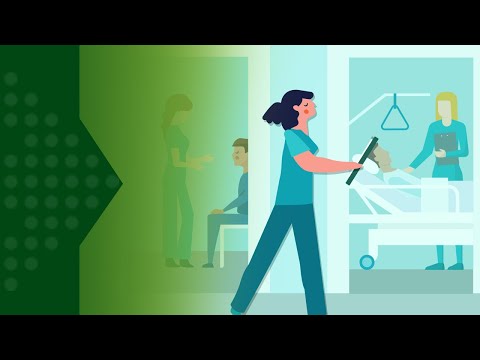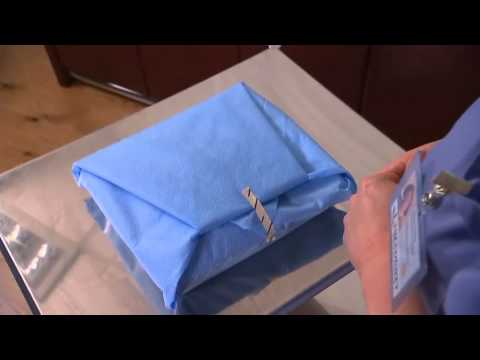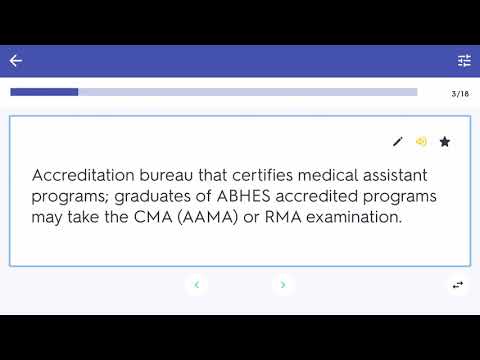The Skills Every Medical Assistant Should Have
Contents [show]
Medical assistants are vital members of the healthcare team. They perform a variety of administrative and clinical tasks to support doctors and other medical professionals.
To be a successful medical assistant you need to have a certain set of skills. These include strong communication abilities, excellent organizational skills, and the ability to multitask. You also need to be detail-oriented and able to work well under pressure.
Checkout this video:
Communication skills
Medical assistants must have excellent communication skills. They need to be able to listen carefully to patients, understand their concerns, and relay that information to the doctor. They also need to be able to explain procedures and instructions to patients in a way that is easy to understand. In addition, Medical Assistants often act as a liaison between the doctor and the patient, so they need to be able to effectively communicate both sides’ needs and concerns.
Organizational skills
As a medical assistant you will be responsible for a variety of tasks that require excellent organizational skills. You will need to keep track of patients’ appointments, medical histories, and test results. You will also be responsible for stocking supplies and keeping the examination rooms clean and organized. In order to be successful in this role, you must be able to stay calm and organized even when the office is chaotic.
Interpersonal skills
One of the most important skills for medical assistants is being able to communicate with patients. This involves more than just giving them instructions or answering their questions—it also means being able to empathize with them and put them at ease.
Another important interpersonal skill for medical assistants is the ability to work well with other members of the healthcare team. Medical assistants need to be able to take direction from doctors and nurses, but they also need to be able to work independently when necessary.
In addition to strong interpersonal skills, medical assistants must also have excellent customer service skills. They may be the first point of contact for patients when they come into the office, so it’s important that they be able to greet them warmly and make them feel comfortable.
Technical skills
While soft skills are important for any medical assistant there are certain technical skills that are essential to the job. Medical assistants must have a working knowledge of Medical Terminology anatomy and physiology. They must be able to take and record patient vital signs, such as blood pressure, temperature and pulse. They may also be responsible for administering injections, performing EKGs and basic laboratory tests, and drafting correspondence. In some states, medical assistants may have additional responsibilities, such as taking X-rays or applying casts.
Computer skills
As a medical assistant, you will be responsible for a variety of tasks, both clinical and administrative. In order to perform your job well, you will need to have strong computer skills. You will use computers to maintain patients’ records, schedule appointments, and billing.
In order to be successful in your job, you should:
-Be proficient in Microsoft Office, including Word, Excel, and Outlook
-Have experience using electronic medical records (EMR) software
-Be able to type at least 40 words per minute
Multi-tasking skills
An effective medical assistant is able to juggle multiple tasks at any given time. This might include answering phones, scheduling appointments, handling insurance forms and billing, taking patient histories and vitals, preparing them for examination and assisting the physician during the exam itself. A medical assistant with good multi-tasking skills is an asset to any medical office.
Time management skills
As a medical assistant, you will be responsible for managing your time effectively in order to provide quality patient care. There are a few key time management skills that every medical assistant should have:
-The ability to prioritize tasks. As a medical assistant, you will have a lot of tasks to juggle on a daily basis. It is important to be able to prioritize these tasks in order of importance in order to ensure that all patients are receiving the care they need.
-Good organizational skills. In order to manage your time effectively, you will need to be organized. This means having a system in place for tracking patients’ appointments, medications, and lab results.
-The ability to multitask. Medical assistants often have to perform multiple tasks simultaneously. This might include answering phones, scheduling appointments, and inputting patient data into the electronic health record system. Being able to multitask without compromising the quality of patient care is crucial.
Critical thinking skills
Medical assistants are vital members of the healthcare team. They perform a variety of clinical and administrative tasks to keep the office running smoothly. While most of their duties are well defined, critical thinking skills are essential for success in this role.
Medical assistants must be able to think on their feet and make quick decisions. They must be able to problem solve and find creative solutions to difficult situations. They must also be able to understand and process complex medical information.
Critical thinking skills are essential for medical assistants because they are often the first point of contact with patients. They need to be able to assess patients’ needs and make recommendations for treatment. They also need to be able to provide instructions and answer questions clearly and concisely.
Some specific critical thinking skills that medical assistants need include:
-The ability to gather relevant information from patients and other sources
-The ability to analyze information and identify key points
-The ability to make sound judgments based on available information
-The ability to communicate effectively with patients, families, and other members of the healthcare team
Problem-solving skills
In order to be successful as a medical assistant, you need to be able to think on your feet and solve problems quickly. You will often be the first point of contact for patients with questions or concerns, so you need to be able to de-escalate situations and find solutions.
You also need to be able to work well under pressure. Medical assistants often have to deal with last-minute changes or unexpected issues, so being able to stay calm and think clearly is essential.
excellent communication skills are essential for medical assistants. You will need to be able to provide clear instructions to patients, as well as relay information between different members of the medical team. Being able to build rapport with patients is also important, as this will help them feel more comfortable during their appointments.
Emotional intelligence
Many people think of medical assistants as the people who take blood pressure, give injections, or schedule appointments. But a good medical assistant is so much more than that. A successful medical assistant has a deep understanding of human behavior and emotions, and knows how to use that knowledge to help patients in a variety of ways.
In order to be successful in their field, medical assistants must have strong emotional intelligence. This means being able to understand and empathize with the feelings of others. It also means being able to regulate one’s own emotions in order to stay calm in difficult situations. Medical assistants must be able to remain calm under pressure and think clearly in order to make quick decisions that could save a patient’s life.
In addition to emotional intelligence, medical assistants must also have excellent communication skills. They must be able to clearly explain complicated medical procedures to patients who may be frightened or confused. They must also be able to listen carefully to the concerns of patients and their families. And perhaps most importantly, they must be able to build trust and rapport with those they serve.
If you’re considering a career as a medical assistant, remember that it’s not just about having the technical skills for the job. It’s also about having the emotional intelligence and communication skills necessary to provide compassionate care for those who need it most.







